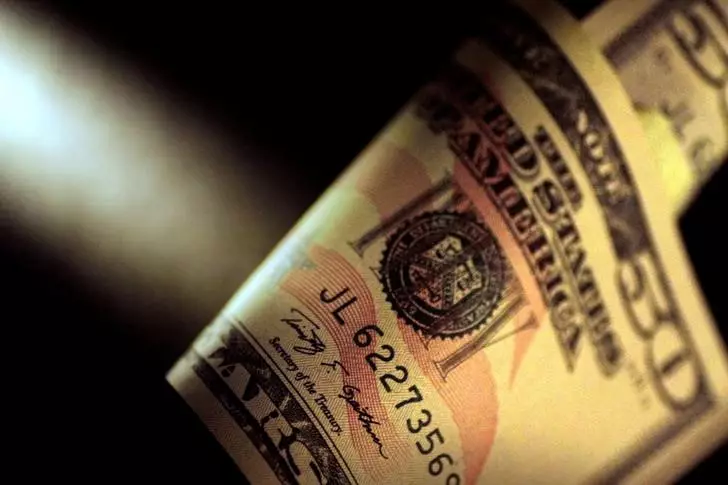The economic climate surrounding the U.S. dollar is significantly influenced by the impending presidential election, with analysts closely monitoring foreign exchange movements. As the election approaches, the dollar is experiencing a marginal decline, signaling concerns about potential instability in the currency market. Recent data showcases that the Dollar Index, which measures the greenback against a collection of six major currencies, registered a slight drop of 0.1% to 103.655. This decrease follows a period in which the dollar reached its highest point since late July, illustrating the volatility that is intrinsic to the market during this period of political uncertainty.
The forthcoming election between Donald Trump and Kamala Harris is anticipated to have a significant impact on currency markets, with recent polls indicating a tight race. As investors react to these forecasts, the dollar’s stature has been affected by a reevaluation of what the “Trump trade” entails. Traditionally seen as a boon for currency strength due to his tariff policies and tendency toward economic stimulation, the uncertainty surrounding his potential victory has imposed a level of caution among traders. Analysts express that any outcome could lead to pronounced shifts in trading patterns, especially if the results tip favorably for either candidate. ING analysts noted that market volatility is reflective of the gravity investors assign to the electoral outcome.
Should Trump secure a win, there remains a possibility of further dollar appreciation, albeit contingent on a comprehensive win for the Republican party. Conversely, a Harris triumph could lead to softer economic policies, resulting in a weakening dollar. The FX options market is currently reflecting this apprehension, with traders bracing for potential swings that could substantially alter the dollar’s positioning against other currencies.
Compounding the unpredictability in the currency market is the upcoming meeting of the Federal Reserve, which has implications for monetary policy. Analysts expect a potential rate cut of 25 basis points, following a larger cut observed in September. The Fed’s stance will likely be influenced by the dualities of resilient economic data paired with emerging signs of labor market downturns. Any indications from Fed Chair Jerome Powell regarding imminent policy changes will capture the attention of international financiers, swaying market sentiment further.
This scenario creates a complex backdrop for the dollar. Investors are positioned cautiously given the labor market indicators that suggest a cooling economic environment, which could compel the Fed to adopt a more dovish stance and drive further rate cuts. Such actions would have ripple effects across the currency landscape and could catalyze diverse responses among international markets.
European Currency Reactions
Shifting focus to the Eurozone, the euro has shown resilience as the EUR/USD pair marked a modest increase of 0.2% to 1.0893. Despite this positive movement, the region grapples with its own economic challenges, particularly in the wake of decreasing industrial production in France. These local economic concerns could temper the euro’s performance, especially as the geopolitical scene is fraught with uncertainty due to the U.S. election. ING experts suggest that the outcome of the election may necessitate more nuanced responses from the European Central Bank, especially if a Trump win generates policies detrimental to global economic stability.
Meanwhile, the British pound has also observed some movement, rising to 1.2980 ahead of the Bank of England’s anticipated rate cut. As the global economic pulse continues to fluctuate, traders will be closely analyzing these developments, which hold the potential to realign expectations around currency valuations in the near term.
As traders digest the implications of the U.S. presidential election, they will also turn to the Asia-Pacific region for cues. The Australian dollar, for instance, may emerge as a key beneficiary should Harris win, as anxiety over tariffs against China would likely diminish. Experts believe this situation could foster a rejuvenated outlook for Australia’s economic partnerships and bolster the local currency.
The upcoming U.S. election introduces profound uncertainty into the foreign exchange markets, influencing trader behaviors and leading to potential volatility in currency valuations. Traders will need to exercise caution while navigating this landscape, monitoring both electoral outcomes and global economic indicators in a complex, interconnected world. The shifting dynamics of the dollar in response to these events encapsulate the intricate ties between financial markets and geopolitical developments.

